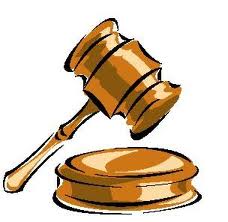- Political system
Politically, the Czech Republic is a multi-party parliamentary representative democratic republic. According to the Constitution of the Czech Republic, the President is the head of state while the Prime Minister is the head of government, exercising supreme executive power. The Legislature is bicameral, with the Chamber of Deputies and the Senate.
 |
| Parliament |
The Czech political scene supports a broad spectrum of parties ranging from Communist Party on the far left to various nationalistic parties on the extreme right.
The power is divided into three branches: legislative (Parliament), executive (Government and the Presidency) and the judiciary (Courts).
- Legislative branch
Every citizen of the Czech Republic over 18 years is entitled to vote.
Chamber of Deputies
The Chamber of Deputies has 200 deputies who are elected in elections for a period of four years. The election system is based on the principles of proportional representation.
Deputies are elected as representatives of their respective political parties and after being elected, the parties create clubs of deputies in the Chamber.
Deputies are elected as representatives of their respective political parties and after being elected, the parties create clubs of deputies in the Chamber.
Senate
The Senate was founded in 1996. For a period of six years, eighty one senators are elected according to the principles of majority electoral system. Elections are held every two years to elect a third of new senators. Every citizen of the Czech Republic over 40 years may be elected to the Senate.
The Senate is intended as a counterweight to the Chamber of Deputies, and as an element of continuity of the Parliament if the Chamber of Deputies is dissolved.
The Senate is intended as a counterweight to the Chamber of Deputies, and as an element of continuity of the Parliament if the Chamber of Deputies is dissolved.
- Executive branch
The representatives of the executive branch of state are the Government and the President of the Republic.
Government
The Government is the supreme body of executive power. Besides the Government, also the ministries and other bodies are part of the management executive.
The activity of the government relies on the government program with which the Prime Minister appears before the Chamber of Deputies. If they approve the program and its members express confidence in the government in a vote, the government can begin its activities and use its powers.
The activity of the government relies on the government program with which the Prime Minister appears before the Chamber of Deputies. If they approve the program and its members express confidence in the government in a vote, the government can begin its activities and use its powers.
President
The President is the head of the State and also of the armed forces. Deputies and senators elect the President in a joint session. The election is held once every five years. The term of office begins on the day that makes the promise.
The president has specific powers, for example, to return laws to the parliament, nominate Constitutional Court judges for Senate's approval and dissolve the parliament under certain special and rare conditions. He also appoints the prime minister as well the other members of the cabinet.
- Judicial branch
 Judicial power is exercised by the courts. The court system consists of the Supreme Court, the Supreme Administrative Court, high courts, regional and district levels.
Judicial power is exercised by the courts. The court system consists of the Supreme Court, the Supreme Administrative Court, high courts, regional and district levels.The Constitutional Court enforces the Constitution. It is composed of 15 judges who are appointed for a period of ten years.

No hay comentarios:
Publicar un comentario